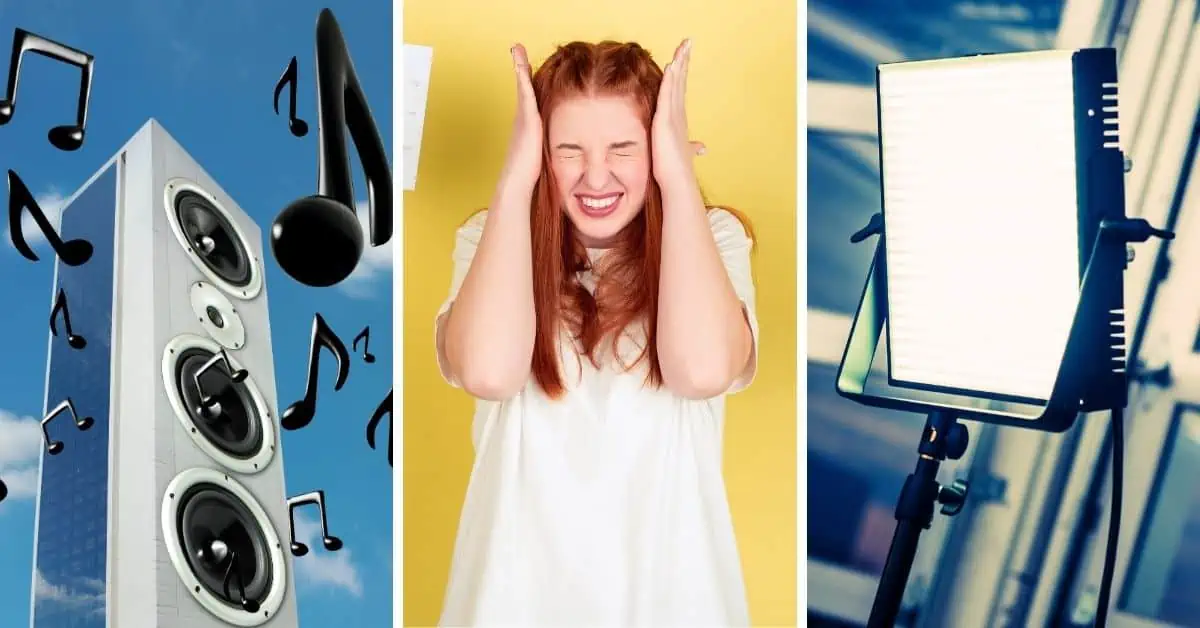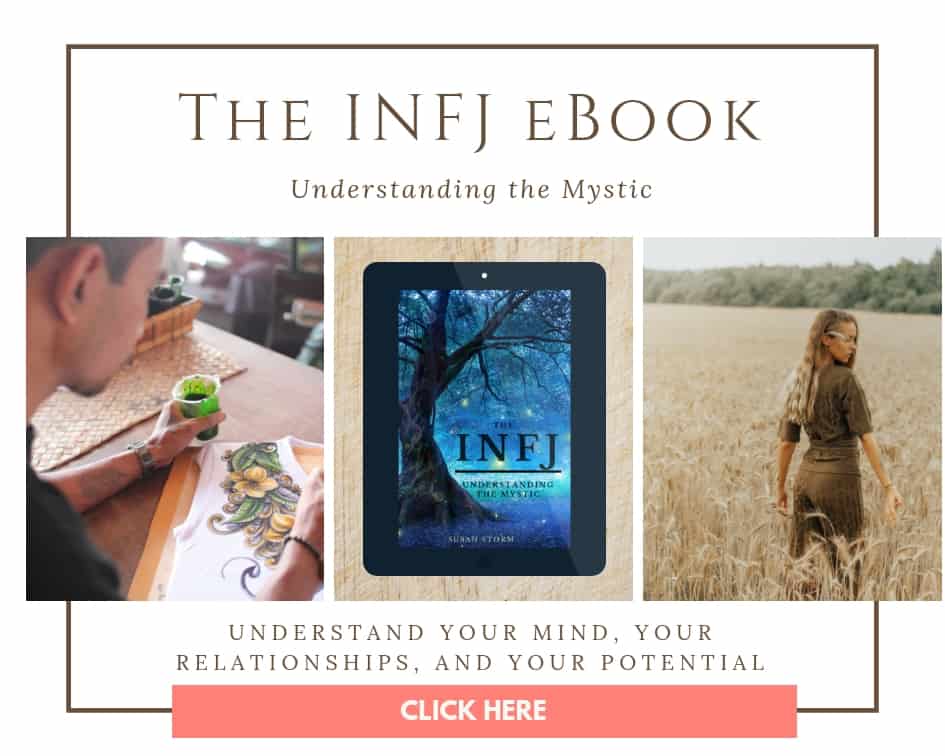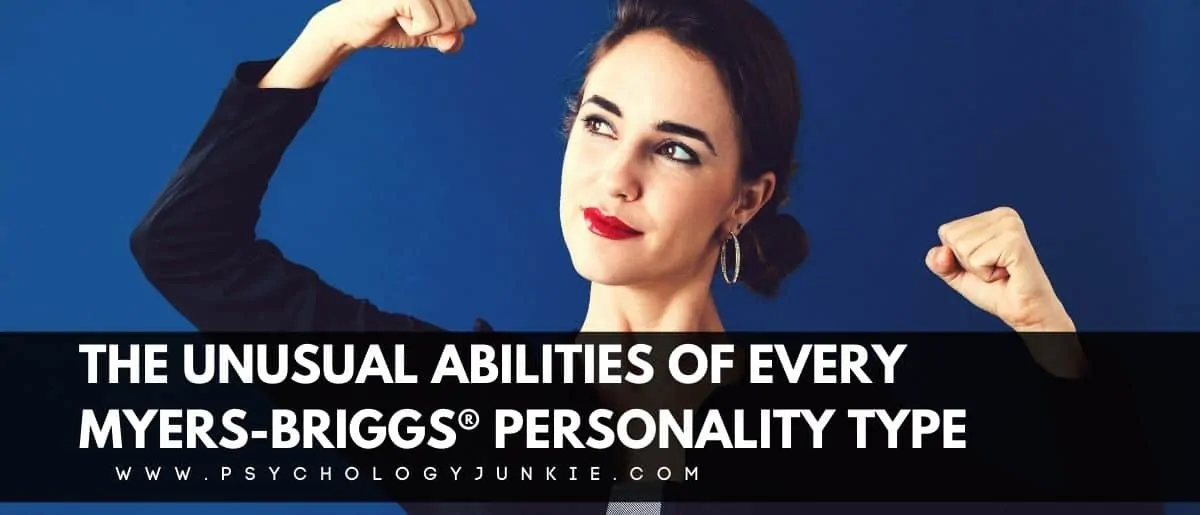Why INFJs and INTJs Get Overstimulated
One thing I struggle with regularly, especially as an INTJ mother, is the tendency to get overstimulated. We INFJs and INTJs live so completely in our heads that outside stimuli, if not pleasant, can be incredibly stressful. Unlike sensors, who are more focused on the world around them, INXJs are often focused internally. Their minds’ are buzzing with ideas, concepts, strategies, and symbols.
For example, while I’m in the shower I tend to think of a lot of ideas and concepts. I’ll often forget if I just shampooed my hair, conditioned it, or if I did, how many times I’ve done it. Sometimes I end up washing my hair three times because I’ve gotten so caught up in ideas that I’ve completely lost touch with what I was doing. I know this sounds flighty, especially to sensors, but it’s one of the problems with being a dominant Ni (introverted intuition) user. I’m not saying every Ni-dominant type is as much of an airhead in the shower as I am…but this type of thing tends to be a problem for a lot of us.

Blogger Stephanie Briggs describes this perfectly; “INFJs tend to be loosely tethered to physical reality, suffering from clumsiness (“How did I get this bruise?”), spaciness, and a distaste for practical details and tasks.”
INFJs and INTJs combine dominant introverted intuition (Ni) with inferior extraverted sensing (Se). Our Se is very underdeveloped and sensitive, meaning that we consider outside stimuli to be a major distraction from what’s really “important” (what’s going on in our heads).
Let’s put it this way, Just like ISTPs and INTPs find extreme emotions distracting and kind of disturbing, INFJs and INTJs find external stimuli distracting and disturbing. If we’re in a tranquil atmosphere, a clean house, or if there’s soft music playing, that’s fine. In fact, we really like that. Tranquil surroundings and beautiful places are really important to people with inferior Se. Our sensitivity to outside stimuli means that while we’re extremely sensitive in a negative way to unpleasant or loud outside stimuli, we are incredibly affected in a positive way by pleasant outside stimuli.
Not sure what your personality type is? Take our new personality questionnaire here. Or you can take the official MBTI® here.
P.S. If you want even more in-depth information on INFJs and relationships, careers, parenthood, and more check out my eBook: The INFJ – Understanding the Mystic.
This article contains affiliate links to books on Amazon. If you purchase one of these books, I get a small kickback that I can use to pay for hosting and other demands of this site. I only recommend books I love.
INFJs, INTJs, and the Science of Their Minds
UCLA professor Dario Nardi conducted a study on personality type and brain activity using EEG technology. He has this to say about INTJs and INFJs:
“Ni types often show a whole-brain, zen-like pattern. This pattern occurs when all regions of the neocortex are in synch and dominated by brain waves that are medium-low frequency and very high-amplitude. This pattern is typical of someone whose mind is awake yet relaxed….What is this zen state like? When presented with a problem, the Ni types seek to harness all neocortex regions in order to “realize” an answer…This zen state works best when focusing on a single question, without distractions that might cause the various regions to fall out of synch. The person might think, “Be quiet world, I just need to stop and think!” When an answer does pop to mind, it might seem like an expert’s work with flourishes of novelty or even an unusual approach to a task.”
Nardi also says in his book The Neuroscience of Personality, that INTJs and INFJs prefer time away from external stimulation and mundane demands in order to access their rich internal processes. To find out more about the science of the Myers-Briggs types check out my article Your Myers-Briggs® Personality Type and Your Brain.
Why Parenting Can Be Especially Challenging for INFJs and INTJs
Quiet time alone. It’s what INTJs and INFJs need. I’m a mother of five kids. I completely adore them. My love for them is incredibly strong. I also homeschool them, so they’re pretty much with me all the time. With kids there will always be interruptions, especially with my toddler who is in a babbling/screaming/squealing phase. I get migraines four days out of the week. I get lost in thought and then there’s the “Mom! Mom! Mom!” chant that all mothers are familiar with. And from all my experiences as an MBTI® practitioner, I’ve realized that INFJs and INTJs struggle with this aspect of parenting a little more intensely than other types.
Why We Hate Interruptions So Much
As a dominant Ni-user, I think in puzzle pieces and clues. In my average mental state, I am connecting dots constantly. That’s just how my brain works. When interrupted, all those little puzzle pieces, all those connected dots, scatter everywhere. I’ve lost it. For non-parents, the distraction could be someone at work interrupting them with questions or the ping of a text message on your phone. I’ve found that I almost always have my phone silenced for this reason.
A lot of INFJs and INTJs are highly-sensitive people. We don’t like fluorescent lights, loud noises, bright, stimulating environments. My husband likes to laugh at me sometimes because I always want to dim the lights upon entering a room. After I do this I am visibly more relaxed and at ease. He also enjoys action movies, and I do too sometimes, but after a while, the explosions and bright saturation of colors get to be too much for me. I want to bury my head in a pillow and block it all out. I’m not prone to outbursts of anger, but if my kids are being especially loud (as kids are prone to do), I often have to go to my room and take a “time out.” I close the door, lay face-down on my bed for a few moments so that all sensory stimulation is cut off, then I get back up, take a deep breath, and try to keep going with the day. Taking these little breaks is part of what keeps me sane.
The Importance of Alone Time
Introverted intuition is such an intensive, introspective process. In order for an INFJ or an INTJ to truly be “in the zone” and able to function properly they need to be able to block out all other stimulation and get into a relaxed mental state. Then they can form connections and develop insights. It can take a while to truly get into this “zen state” as Dario Nardi describes it. Often, for me, it happens right around the time I’m trying to go to sleep. You can imagine why! Everything’s dark and quiet and I’m able to completely isolate myself with my thoughts. All a sudden my mind is bursting with insights and revelations that never occurred to me throughout the day.
If I get into that relaxed state at home during the day, and then someone turns on some loud music, a TV show, or there are random interruptions or questions, it can be extremely overstimulating. In fact, if my inferior Se is “triggered,” I can fall into the grip of Extraverted Sensing (Se), and become overly indulgent (as Se-inferior types tend to do). This means that in order to “ground” myself in reality, I sometimes will succumb to over-eating, listening to incredibly loud music, or engaging in an unhealthy way in any kind of sensory activity.
All things considered, if you have an INFJ or an INTJ in your family you can definitely try to make their life a little easier by giving them some alone time or not interrupting them when they’re deep in thought. If you are a Ni-dominant type then you can try to take little segments out of the day to shut out stimulation and think, even if it’s just for a little while. One of the ways I do this with kids is by packing up my toddler in the stroller and taking him for a walk every single morning. He gets really quiet, and it’s very peaceful, and I can just think. Everyone has different methods and different ways they can achieve this solitude and time to focus.
What are your thoughts?
What do you do to block out sensory stimulation? What kinds of ways do you get into a positive mental state? I’d love to talk to you in the comments!
Find out more about your personality type in our eBooks, Discovering You: Unlocking the Power of Personality Type, The INFJ – Understanding the Mystic, The INFP – Understanding the Dreamer, and The INTJ – Understanding the Strategist. You can also connect with me via Facebook, Instagram, or Twitter!
Other Articles You Might Enjoy:
Here’s Why INFJs and INTJs Seem “Intense”
10 Intuition Hacks for INFJs and INTJs
The Unique Intelligence of INFJs, INTJs, ENFJs, and ENTJs
All About INTJs
Get Your Free INFJ eBook
As a thank you for subscribing to my newsletter I will send you this free eBook PACKED with self-care tips, creativity hacks, and more! You'll also get a 3-day email course for understanding your personality type better!















I totally agree with the gist of this article! The thing I enjoy doing the most is reading and thinking. I just cannot function when my surrounding environment has distractions – be it loud noises, bright lights or too many people around. I’m an INTJ.
I’ve only started realising how much I identify with the INFJ type now after doing the MBTI test about 17 years ago. It surprised most of my work colleagues to discover I was an introvert then. I now have three children and whilst I loved the early stages of babyhood, it became so difficult to cope with when I had a baby, toddler and school age. I’ve always hated overhead lights, strong windy weather, and other people’s loud music. I have really sensitive tastebuds and people wanting to touch me – leaves me wanting to punch them at the end of a busy day! The best thing that’s happened has been separating from their father. I now get a whole day and evening to myself, one day a week. It never feels enough and whilst I love my children unconditionally, I think I’ve got ten years or so of solitude to reclaim. The invasive feel of phone calls has been exacerbated by FaceTime, and I avoid it where possible. I’m much happier using my phone to connect with someone via text, who understands me. Reading, drawing, creating – even tidying – all make me feel like the daily buzz of the world (I have tinnitus too) has reduced. Ideally I’d like to withdraw from the world and when I miss it, to rejoin. Never works like that though with three kids, work and a narcissistic ex!
I swear you have my identical life! 4 kids instead of 3, 2 adult and 2 teen boys who overstimulate me to the brink of insanity! I run an operating room in a very busy inner city trauma center, and have a narcissist ex who is constantly jockeying for for control of my life! Silence is a rare and coveted thing in my life!
I never realized my outright hatred of fluorescent lights is related to being an INTJ. I can even hear them buzzing when no one else can. I feel a little less weird now.
There are some movies I find I just can’t watch, and now it makes sense. There’s too much going on with the camera angles. I got physically ill when I tried to watch Man On Fire with Denzel and Dakota Fanning. It made me sad, because it’s such a good movie. I can listen to it, but I can’t watch it.
I also feel more comfortable in a darkened room, which my mom and sister don’t understand, and need almost total darkness to sleep. I’m not alone in all my sensory weirdness!!!
Hiya! Overstimulated, insomniac, homeschooling, INTJ here! Thanks for a great article!! I am starting a blog and an organization with a friend that will focus on therapy, education, and services for fellow sensitive empaths. I am reaching out to all of you because I have this sneaking suspicion that INTJs have a tendency to be empaths. Do you find this to be true?
I agree. I’m a 37 year old make INTJ consistently rested as since 5th grade. (Latter test results prob don’t count because I believe I’m an intj)
Excellently written. I’ve just recently realized that overstimulation is a reality for me. Talk about eye-opening…A very important foundational piece of knowledge. Thanks for your ideas and insight.
I’m so glad this was helpful to you! I hope over-stimulation gets easier for you! Thanks for your feedback 🙂
For years I didn’t like opening the curtains of my room and now I know why. I never thought that it had anything to do with my personality type.I never quite liked noisy environments either because it could get so overwhelming and I couldn’t think properly. And I’m guilty of the same thing, I tend to forget whether I’ve already washed my hands or not before a meal etc ,it’s become a little less over the last year though I still hate it when someone turns on the light of my room in the morning because it’s so harsh.Before I forget, I’m an INFJ
So helpful! Thanks…from one INFJ parent to another! I love your posts by the way!
Thanks so much! I’m so glad you’re enjoying them 🙂
Oh wow, now I understand why I’m prone to overindulging – loud music, booze, etc. I had no idea it had to do with my Se function being triggered….very insightful.
This article is so extremely helpful! I’m an INTJ and my wife is an INFJ. We homeschool our four kids, ages 9, 7, 5, and 3. Needless to say, we can both relate to this article like you can’t believe! It’s really nice to feel some validation in the midst of constantly feeling like a misfit… Thank you for the post!
This is really me! I get physically ill when the house is noisy. Thank you so much for this article. I’m happy to know that I am not the only one who gets overstimulated.
This is such a relief to me. I have always, since a child, had a habit of going to the bathroom and locking the door when feeling overwhelmed, bith at home and at social events. I find the combination of trying to navigate all those other peoples thoughts and emotions too much at times. Sometimes i return from one of my shifts as a mental health nurse and play my music incredibly loud and dance until my body is exhausted, I also sometimes overeat to the point of uncomfortable fullness. I find i cannot relax until my house is tidy and my lights are always kept low. My significant others is a hoarder and he doesn’t understand why his home causes me near physical anguish. Other times i hide under my covers in a dark room for 24-48 hours until I have processed my thoughts and feelings. I have felt so long that these habits were unique to me and faults or oddities. Discovering that these traits are not unusual in INFJs has enabled me to accept myself more.